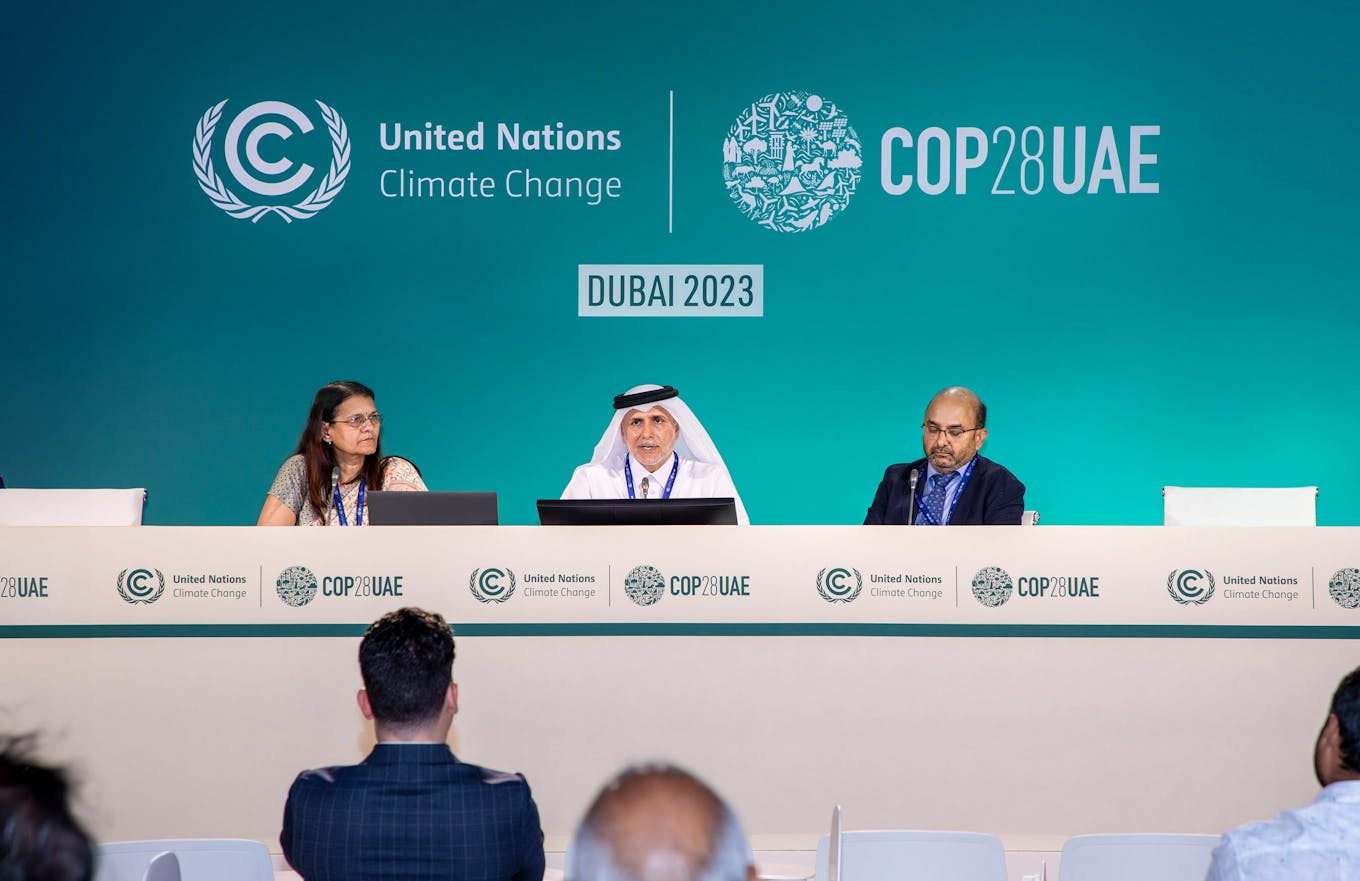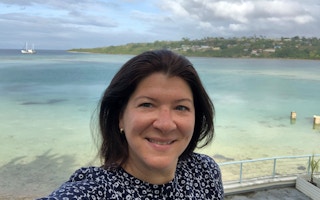A technical centre launched at the COP28 climate summit in Dubai last December has appointed former United Nations Development Programme (UNDP) global carbon technical advisor Alexandra Soezer as its inaugural director.
To continue reading, subscribe to Eco‑Business.
There's something for everyone. We offer a range of subscription plans.
- Access our stories and receive our Insights Weekly newsletter with the free EB Member plan.
- Unlock unlimited access to our content and archive with EB Circle.
- Publish your content with EB Premium.
The newly-established Climate Action Centre of Excellence (CACE) aims to accelerate the implementation of Article 6, a section in the Paris Agreement which lays out the rules for countries to voluntarily trade carbon credits to meet their national climate targets.
While Article 6.2, which covers government-to-government carbon credit deals, has been operational since COP26, the fate of Article 6.4 – which would create a global carbon market overseen by a UN entity – remains uncertain after countries failed to reach a consensus on it at COP28.
“I am enthusiastic to lead CACE into this new era, particularly as we focus on supporting Internationally Transferred Mitigation Outcomes (ITMOs, or carbon credits exchanged across borders under Article 6.2) buyers and sellers in unlocking the opportunities Article 6 presents,” she wrote in a LinkedIn post earlier this month.
Nearly four-fifths of all countries have signalled their interest to use Article 6 to meet their emissions reduction targets, as of end 2023.
Soezer brings with her 15 years of experience at UNDP, where she supported countries in developing Article 6 frameworks, setting up national registries and implementing carbon mitigation projects. She also sits on the technical committee for the World Bank-backed carbon credit data platform Climate Action Data Trust.
While there is “significant overlap” in what she was involved in at UNDP, Soezer told Eco-Business that the scope of work at CACE is “notably broader and more ambitious.”
“We are actively forging partnerships across the public and private sectors to expedite the implementation of Article 6 on a global scale, transitioning from theory to action. Our comprehensive one-stop shop approach uniquely positions us to address the multifaceted needs associated with operationalising Article 6 and facilitating the monetisation of ITMOs.”
The rest of the team is in the midst of being assembled and will include both external experts and internal staff who will provide readiness assistance, project pipeline development and matchmaking services to host countries in search of buyers, said Soezer.
The Qatar-based centre is backed by the Gulf Organisation for Research and Development (GORD), a government-owned organisation founded by Qatari Diar, which is a property development subsidiary of the Qatari sovereign wealth fund.
GORD runs the Middle East and North Africa region’s first voluntary carbon offsetting scheme Global Carbon Council (GCC), which acquired the Global Carbon Registry – a United Kingdom-headquartered platform which allows countries to launch their own national carbon registries – last December.

Dr Yousef Alhorr, founding chairman of Global Carbon Council (GCC) and Gulf Organisation for Research and Development (centre) as well as Kishor Rajhansa, chief operating officer of GCC (right) at the launch of the new centre at COP28 in DubaI. Image: GCC
CACE will focus on Article 6 capacity building, supporting the development of a UN-regulated carbon market and driving decarbonisation initiatives, such as the phase-out of coal plants and the switch to lower-carbon fossil fuels like natural gas, according to an interview Soezer did earlier this month.
Despite pledging to transition away from fossil fuels at COP28, Qatar plans to expand its liquefied natural gas (LNG) production capacity, which could see the small Gulf nation controlling about a quarter of the world’s LNG market by the end of this decade.
Nevertheless, Soezer wrote on LinkedIn that the centre is “ideally located in Doha [the capital city of Qatar]” given that it is “on the cusp of significant economic and technological advancements.”
“Our commitment to remaining independent and grounded in scientific evidence is paramount, guiding all our initiatives and collaborations to ensure we contribute meaningfully to the global climate agenda,” said Soezer when asked about how she will ensure that the centre operates free of influence from the country’s LNG industry.
Soezer also mentioned that Daniel Tutu Benefoh, acting director of the Climate Change Unit of Ghana’s Environmental Protection Agency – who she previously worked with during her time at UNDP – will serve as CACE’s “climate change ambassador” for Africa.
Ghana has been one of the most active host countries for Article 6.2 carbon credits, having signed a bilateral agreement with Switzerland in 2020 and substantively concluded negotiations with Switzerland and Singapore last year. It is also in negotiations with South Korea, Liechtenstein and British oil and gas major BP.
In its first annual Article 6 implementation report, the Ghanaian government said it expects to deliver its first batch of credits under Article 6.2 in the third quarter of 2024.












